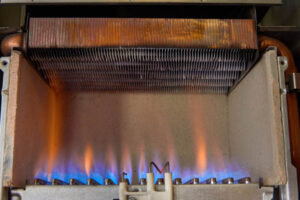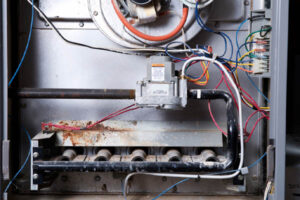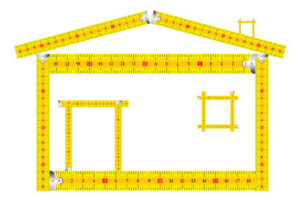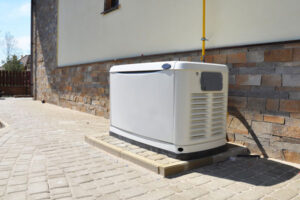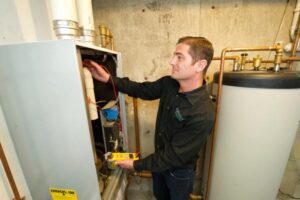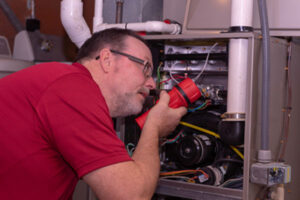3 Causes of Rust Formation on Your Furnace
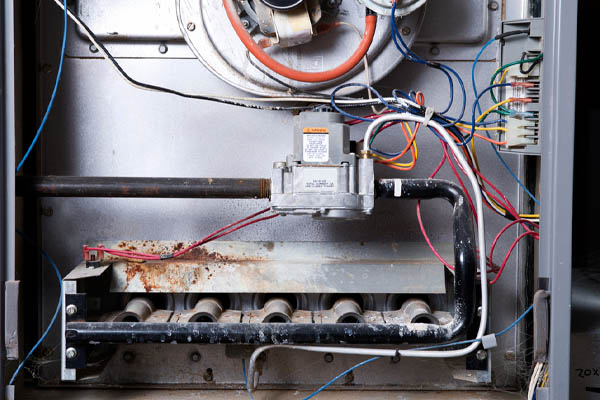
Contents
Understanding the intricacies of your heating system’s susceptibility to rust is paramount. Just as metal is prone to rusting when exposed to certain conditions, so does your home heating system. Although humid conditions are often the primary culprits, merely operating your furnace can lead to temperature disparities. These differences might generate the moisture that can instigate rust in furnace – even in the most robust and meticulously built heating systems.
One might assume that not using the system might stave off rust, but that’s not a viable strategy for those who need warmth during the colder months. The reality is rust is an inevitable occurrence in many furnaces. It’s more common than many realize. In this article, we here at Columbus Energies will shed light on some of the leading causes of this phenomenon.
Understanding Rust in Your Heating System
To properly care for and maintain your heating system, it’s essential to understand what might cause issues like rust. Here’s a breakdown of the primary culprits:
1. Humidity and Water Vapor
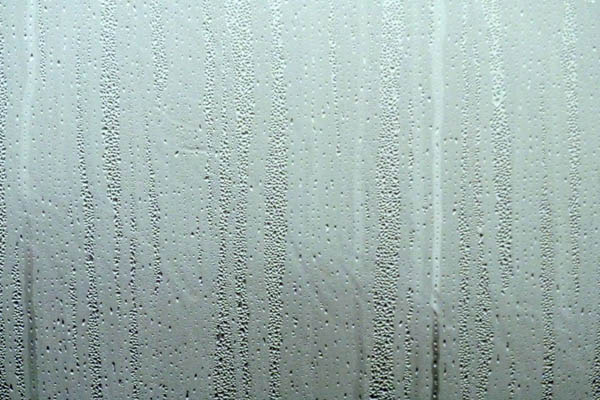
The foremost cause of rust is humidity, which measures the amount of water vapor in the air. It’s worth noting that certain regions inherently experience higher humidity due to environmental factors. This can cause an increased risk of rusting for furnaces in those areas. However, even if you’re not in such a region, the indoor environment of your home, which can be viewed as its own unique microclimate, can also contribute. Introducing more moisture into this environment—from activities like cooking, bathing, or even from plants—can heighten the humidity. However, the biggest contributor is water leaks.
2. Air Conditioning Leaks
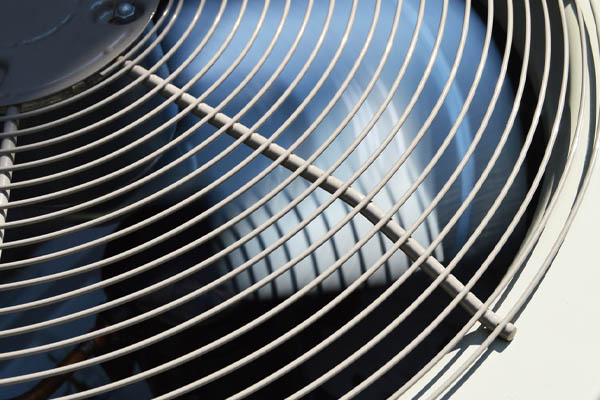
A particularly noteworthy cause of rust in heating systems is linked to air conditioning units. Modern homes often feature centralized air conditioning systems, making them intrinsically linked to the heating system’s furnace ductwork. This integrated setup means that any water produced by the A/C unit can find its way directly into the heating mechanism.
It’s essential to realize that water is a natural by-product of the air conditioning process. When the A/C unit functions, condensation occurs, leading to the production of water. If not properly managed, this water can result in leaks.
Such leaks can drastically increase the ambient humidity within your home. Worse yet, they can cause actual pools of standing water to accumulate in the furnace or nearby areas. Not only is this detrimental to the heating system’s overall health, leading to rust, but it also presents an inconvenient challenge for homeowners.
3. Furnace Exhaust Complications
A third significant factor contributing to heating system rust is furnace exhaust dynamics. When your home’s heating system is operating, generating heat in the furnace can influence the humidity levels in its immediate vicinity. The furnace produces extremely hot air, which begins to cool post-production, especially as it exits the burner. This transition from very hot to cooler temperatures can result in the formation of condensation inside the heating system.
This condensation can subsequently contribute to increased moisture levels within the furnace structure. If not adequately managed or vented, this moisture becomes a potential breeding ground for rust, affecting the system’s overall health and efficiency.
The Consequences of Rust in Furnaces
While it’s inevitable that all furnaces will face rust over time, the emphasis is on the “over time” aspect. Given the right circumstances, rust can take over in just a few years, or it might be a battle fought over a century. Vigilance is the key to prolonging your furnace’s life and delaying this natural degradation.
Strategies to Combat Furnace Rust
Here are some proactive measures you can adopt to reduce rust accumulation in your furnace:
Prioritize Annual Furnace Check-ups
Regular furnace maintenance is at the heart of any rust-prevention strategy. Scheduling an annual inspection with a trusted HVAC contractor is a modest investment when considering the alternative – potentially replacing the entire system. This yearly check-up will involve a thorough examination for any signs of rust, ensuring your heating system’s safety and optimal performance.
Assess Clogged Burner Jets
Over time, rust can directly impact the performance of your heating system. One common manifestation is the clogging of burner jets. When these jets are obstructed, they operate at reduced efficiency, demanding more fuel to generate the same heat levels. An even graver concern is that this suboptimal combustion can lead to the dangerous accumulation of carbon monoxide gas — a silent, odorless, and lethal threat.
Consider Compromised Furnace Fuel Supply Lines
Another serious consequence of rust is the weakening or failure of the furnace’s fuel supply lines. This degradation poses a significant threat to the furnace’s operation and introduces a severe risk of fire or explosion within your home. We often hear distressing reports on the news showcasing the devastating aftermath of such incidents: where once stood a home or business now lies only charred remains.
Rust isn’t just an external blemish; it’s a clear and present danger. While you might initially notice harmless-looking orange streaks on your furnace’s exterior, they could be a harbinger of extensive internal damage. By the time these external signs become evident, the internal components might be severely compromised.
Address Furnace Issues Promptly
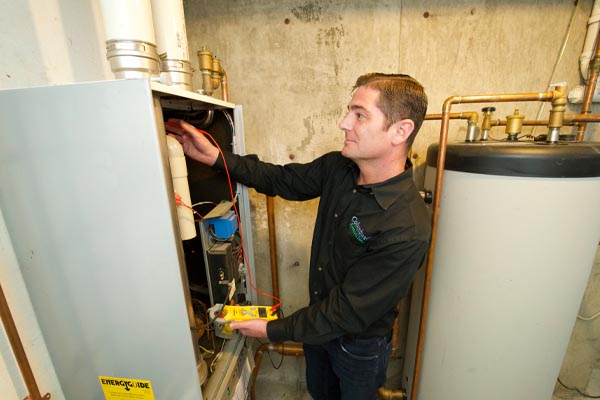
Regular maintenance is only one piece of the puzzle. Ensuring your furnace’s longevity and optimal performance also requires prompt attention to arising issues.
After your annual inspection, it’s vital to address any identified issues without delay. If rust formation causes have been pinpointed during the check-up, they must be rectified immediately. Addressing root causes and then tending to any damage already inflicted on the system will go a long way in preserving its lifespan.
However, repairing might not be the best course of action in some situations. Some systems, despite best efforts, might be beyond salvageable. In other instances, the costs might outweigh the benefits even if a system can be brought back to its best operational state. Consider an older furnace; even if restored to its utmost efficiency, it may still lag behind the performance of modern systems operating below their peak levels.
Homeowners may find it challenging to navigate these complex decisions on their own. It’s crucial to consult with knowledgeable professionals in the field, like those at Columbus Energies, to make informed decisions about repairs, replacements, and overall furnace care. They can provide valuable insights into the most cost-effective and efficient solutions tailored to individual needs.
Use HVAC Professionals’ Expertise
HVAC experts provide tailored solutions based on each homeowner’s unique situation. They clearly lay out options, considering factors like rust prevention, which expands choices for system care. Remember, if rust progresses unchecked, options diminish, potentially leading to necessary total replacements due to safety. It is recommended to regularly consult with experts to ensure optimal decision-making for your heating system.
Contact Columbus Energies for All Your HVAC Needs

Columbus Energies is a beacon of excellence in HVAC services in Southeastern Massachusetts and the Rhode Island region. Our team comprises top-tier certified technicians equipped to offer stellar HVAC tune-ups, repairs, installations, and replacements. With a wealth of expertise, they ensure that every HVAC service is executed to perfection.
We offer competitive rates without compromising quality. Our maintenance solutions elevate your comfort and optimize energy efficiency, subsequently lowering your heating and cooling expenses. Should you require an HVAC system repair or replacement, trust us to recommend the most suitable option tailored to your needs and budget. We stand behind our work, guaranteeing complete customer satisfaction.
To schedule a service, contact Columbus Energies. We provide complimentary in-home estimates.
Contact us now by calling (508) 674-1492 to speak to one of our home comfort specialists! Click the link to view our HVAC service area.
Related Articles:

